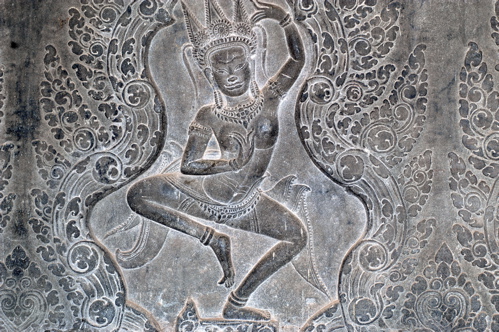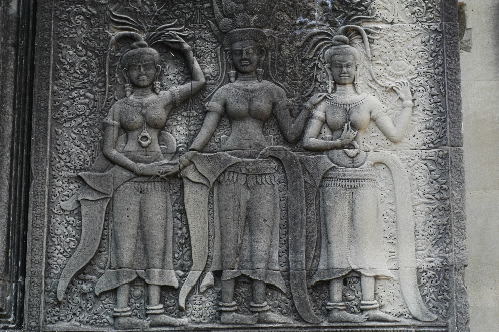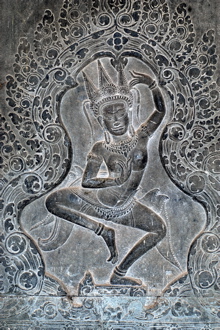Differences Between Devatas & Apsaras In Angkor Explained

Dancing Aspara West Wall Angkor Wat
Apsaras
- The Angkor dancing ladies carved in relief on the walls of the major Temples, such as, Angkor Wat, Preah Khan and Bayon, are ''Apsaras''.
- Apsaras are seen with one leg off the ground, arms flowing and no individual facial styles. They are usually dressed with gold headdresses and their fingures are bent backwards as if with no joints or bones.
- They originate in Hindu mythology as spirits, the equivalent to the English concept of a nymph or celestial nymph or maiden. Examples of famous Apsaras can be seen in the ancient Indian texts, the Rig Veda and the Mahabharata. Southeast Asia was ''Indianised '' with Indian traditions and religions prior to the Khmer Empire.

Three Devatas West Wall Angkor Wat

Dancing Aspara West Wall Angkor Wat
